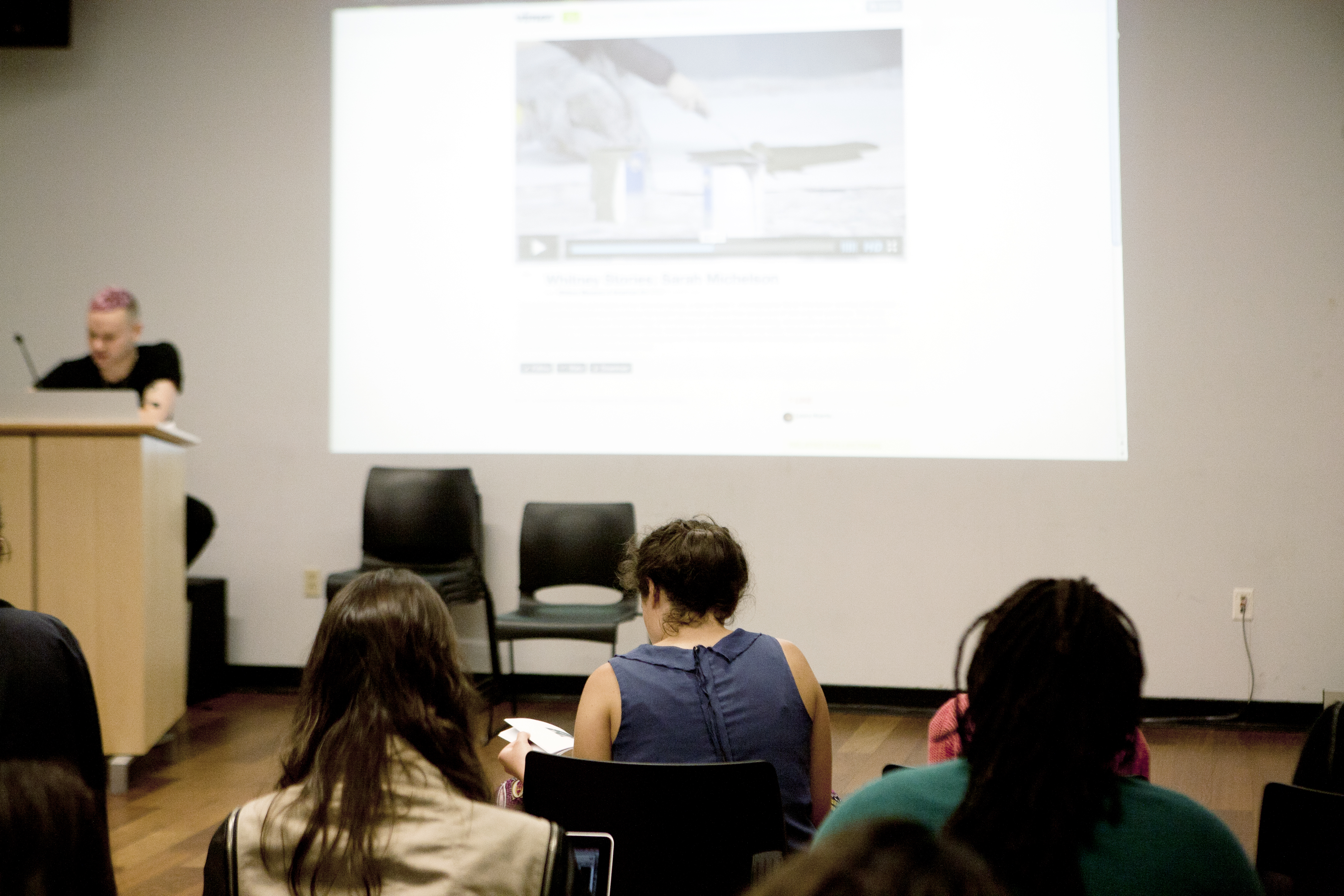Introduction to Performance Studies
PERF-UT 101, 4 points
To enter the field of Performance Studies is to proceed with a willingness to forgo strict definitions of art “objects” and “events.” The field encourages engagement with everyday life, performers from a variety of media, things inside and outside cultural institutions, and an expansive sense of the stage to reflect on how performance impacts our sense of the world. Music, theater, visual art, dance, and film are not divided into separate areas of study, but are necessarily engaged all together. While the question, “what is performance?” has mystified the minds of many, this course moves beyond this question to investigate: what does performance do? And how does performance help us to ask questions about aesthetics, politics, and the social world? The question “what does performance do?,” opens the line between theory and practice; a line that falsely separates the performer from the critic. Students will work together across these divides. In addition to deepening an understanding of the field of Performance Studies, students read texts that vitalize critical thinking in the humanities. The course engages theories of the field as they emerge from performances themselves, especially from the robust creative repertoires of New York City.
